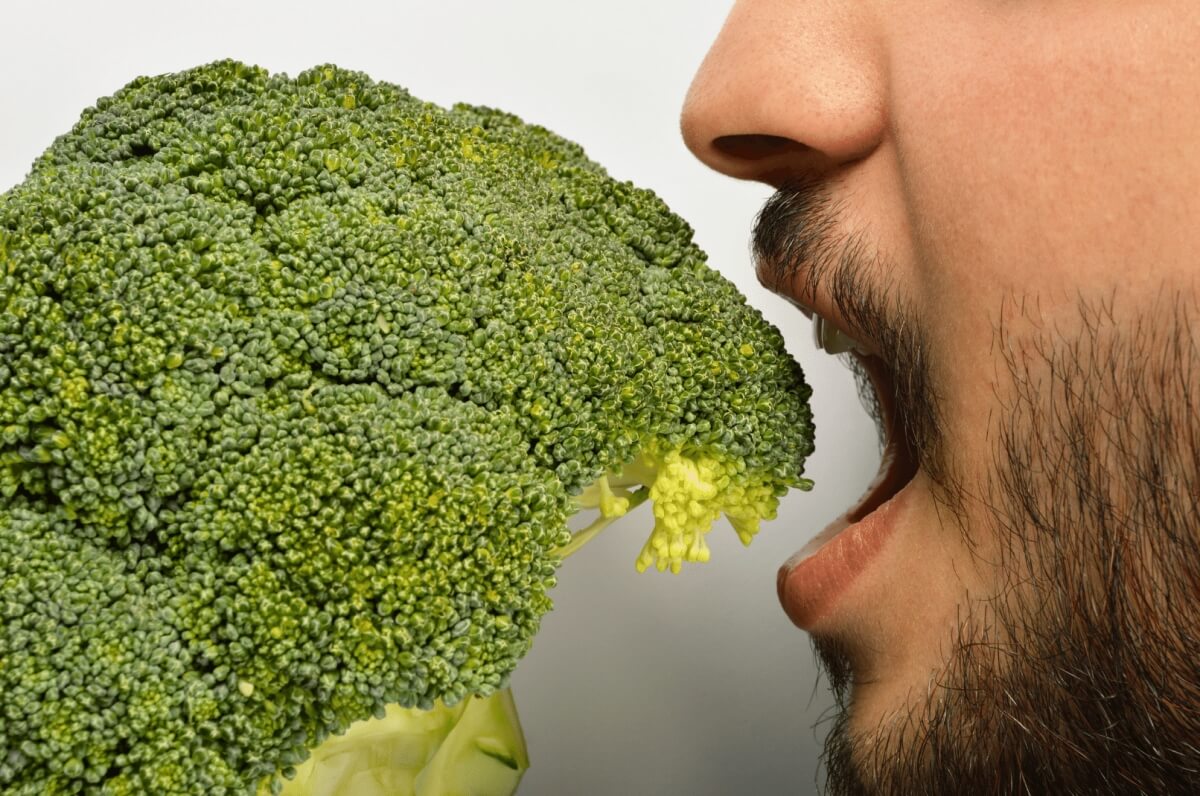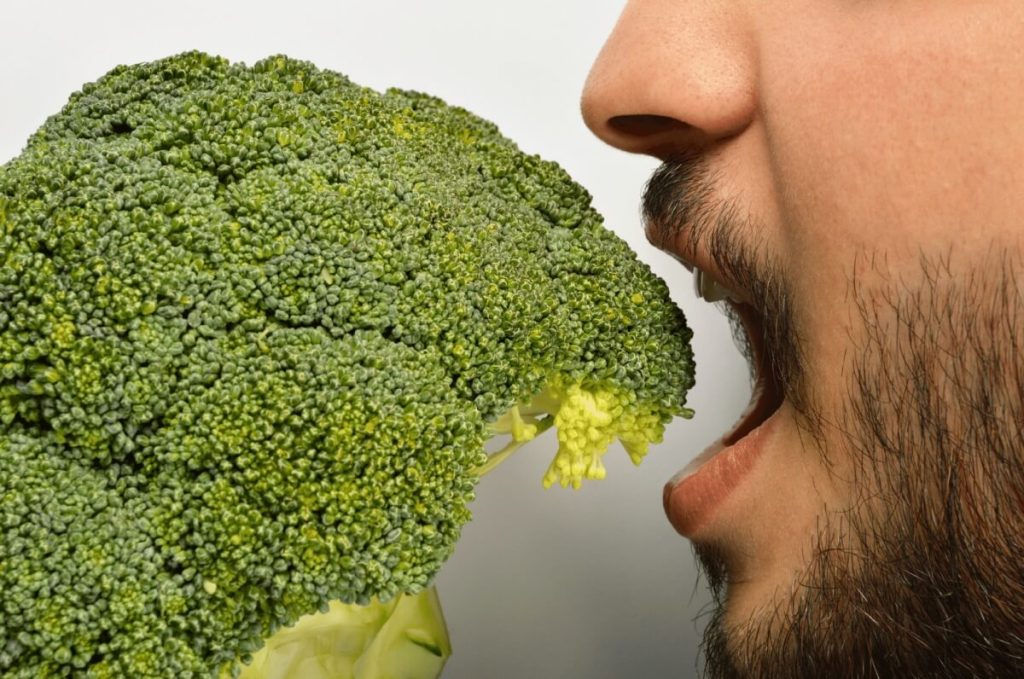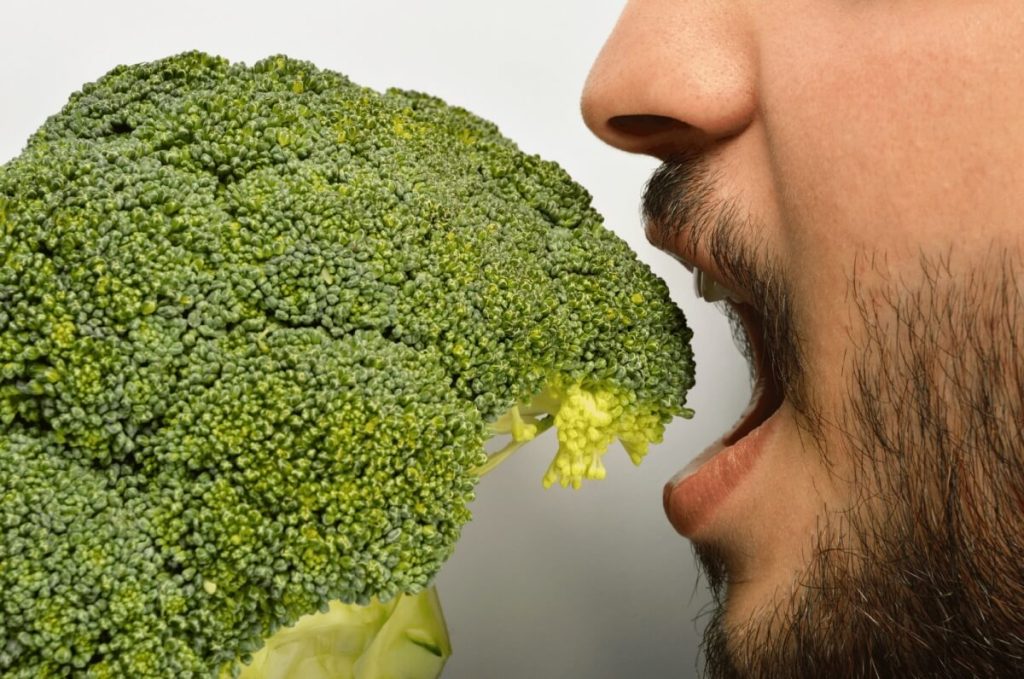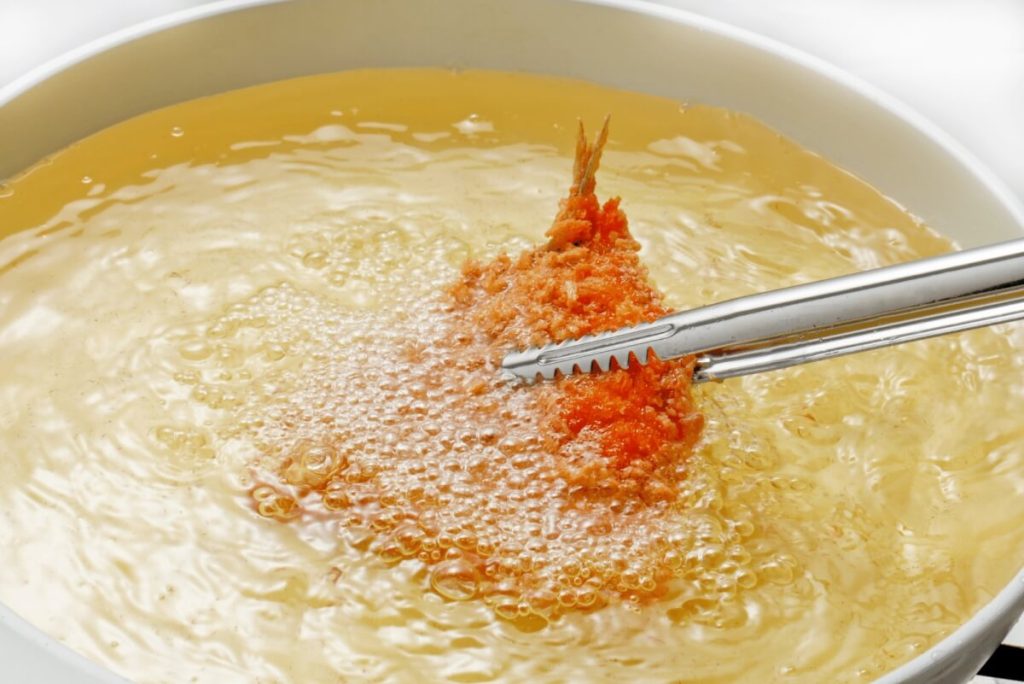
What Are The Best… And Worst Foods For Men?


What Are The Best… And Worst Foods For Men?
In part 1 of 2 we’ll examine how nutrition and metabolic issues interact to either support or sabotage your health. We’ll also highlight the most toxic and damaging foods for men to be aware of and moderate or avoid. Our intention is to pass along essential knowledge so you can confidently design the “best for you” nutrition plan for life.
How Food Impacts Men’s Health And Hormones
Food provides the fuel and building blocks for everything we need on a physiological level to maintain a resilient body. Food is also a main source of toxins that can impact your hormones. Therefore, the foods you eat and how you prepare them make a big difference in how you produce energy, hormones, neurotransmitters etc.
For example, the exact same piece of grass-fed meat cooked low and slow in a stew versus grilling over open flame. The grilling will create toxic Polycyclic Aromatic Hydrocarbons (PAHs) which over time may disrupt hormones, and increase risk of cardiovascular diseases and cancers. The PAHs may also interfere with estrogen detoxification. Whereas the low and slow cooking method will preserve nutrients and reduce toxic by-products. In my experience, these details matter.

Some of the building blocks we get from food that we’re talking about here, specifically for hormones like testosterone include:
- Cholesterol
- Complete proteins, meaning containing all essential amino acids
- Vitamin D3
- Zinc
- Magnesium
- Selenium
- Iodine
Macro And Micronutrient Requirements
If you are starving or severely restricting your macronutrients and/or calories, your health will not be optimal. When your body is chronically stressed from nutrient deficiencies or caloric deficits, libido is often the first thing to go down. This is simply because your body considers your immediate survival to be more important than procreation.
Athletes can run into this situation where they are attempting to lower their weight while maintaining high physical output. I’ve seen this lead to depressed mood, lowered libido, foggy thinking, and slower recovery even though they’re fit by sporting standards.
On the other hand, intermittent fasting is a conscious choice to restrict calories to elicit health benefits for a limited duration to upregulate autophagy and other anti-aging pathways. Ideally, you’d also fast during less active times and increased rest to maximize its capacity for regenerative maintenance.
To maintain vitality, you need to alternate between periods of consumption or anabolism (mTOR), and hormesis and cleanup (autophagy). The modern diet and lifestyle emphasizes and rewards constant consumption, while avoiding the good stressors that keep us healthy.
Most people nowadays eat too much, are constantly surrounded by food, and don’t exercise or go through enough good stressors. If you’re like most people, you’ll benefit from eating less and introducing these good stressors like intermittent fasting, exercise, or heat or cold exposure. However, if you’re under-eating, nutrient deficient, and too stressed out, you’ll need to add more calories and reduce stress. The key is correcting the imbalances.
When you are well-fed and ingesting the essential vitamins and minerals, your body is able to express its natural vitality. This means eating enough calories, proteins, carbs, and healthy fats to fuel:
- Basic metabolic functions
- Regeneration and maintenance of tissues
- Production and regulation of hormones
- Synthesis of neurotransmitters
- And detoxification of poisons, wastes or environmental toxins
Now of course, if you are overweight, then it’s typically beneficial to correct that, and you’ll need to be on a caloric deficit. When it comes to this article, we’re focused on maintaining body weight and not aiming for any kind of calorie deficit.
Micronutrients Worth Highlighting
Micronutrients refer to the essential vitamins, minerals, and trace elements that we consume either through food or via supplementation. Soil health and variations in farming practices means that micronutrient content of foods may be highly variable. Factors like:
- Where and when your food was grown
- When it was harvested
- How it was stored and transported
- What it was treated or sprayed with
Knowing this, there are certain foods worth prioritizing because of their typically greater amounts and bioavailability of essential micronutrients. Now, let’s look at some important micronutrients for men’s health so that you know what to pay attention to.
1. Zinc
Zinc has gotten more attention than ever before in the past couple years for its role in supporting immune health. It’s also important for testosterone levels.
2. Vitamin D3
Whether you get it from food, sunshine, or a supplement, vitamin D3 is associated with testosterone production and overall vitality. A vitamin D deficiency can also reduce testosterone levels. Technically a steroid hormone, vitamin D3 has numerous essential functions throughout the body.
Not only does it help modulate gene expression and improve immunity, it also improves reproductive health. A study done on 260 Brazilian men showed that serum vitamin D correlates with healthier sperm and testosterone levels.
If you don’t get 20-30 minutes of midday sun on at least 40% of your skin on a regular basis then you’re likely going to need extra D3. This means getting it through foods that are highest in it as well as supplements.
Luckily, D3 is easy to check on a blood test so you can also measure your levels first to be sure before embarking on any regimen. That said, I personally take and have clients take 4000 IU per day through the winter months as a baseline dose. Some people need more to achieve optimal blood vitamin D levels, especially if they’re larger or have more body fat, so it’s a good idea to test seasonally.
3. Boron
Boron is a mineral often found in fruits and taken as a supplement. Part of the reason why this is beneficial for men’s health and hormones is because it helps support free testosterone. Boron supplementation liberates testosterone from sex hormone binding globulin (SHBG), resulting in higher levels of free testosterone.
That said, it’s virtually impossible to get the same dose used in studies on boron supplementation through food. This means the effects are likely not to be as pronounced from food sources alone. In studies, 10 mg produced benefits of lowered inflammation markers and estrogen levels while increasing testosterone levels. A standard amount from food is typically 1mg or less so this is certainly something to consider supplementing with.
4. Selenium
Selenium, another mineral with immune supportive and antioxidant properties is also important for men’s health. Thought to protect sperm from oxidative damage and to support testosterone levels, this mineral is one to pay attention to.
In animals, selenium alleviated the damage caused by fluoride to cells in the testes responsible for fertility. This combined with its support for healthy thyroid function make selenium a mineral you certainly want to optimize your intake of.
It’s important to note that too much selenium can be toxic, so don’t go overboard with high selenium foods like brazil nuts. Instead, aim for 2-3 brazil nuts per day and rest assured that your dietary selenium needs will be well taken care of.
Insulin Resistance And Belly Fat

Insulin resistance is a major contributing factor to poor health in men. And you can have some insulin resistance years or decades before a metabolic syndrome or diabetes diagnosis. Signs include:
- Carbohydrate and sugar cravings, or having a sweet tooth
- Increased fat accumulation, especially around the midsection
- Mood swings and brain fog
Chronically elevated blood sugar or frequent blood sugar fluctuations demand your pancreas to secrete more and more insulin. Eventually, your cells and muscles become insulin resistant, so your belly fat cells take up the remaining sugar. As this progresses, your cells won’t be able to effectively use glucose for energy.
This poor blood sugar control can also increase the risk of heart and blood vessel issues, kidney dysfunction, and nerve/vision problems. All of these, especially cardiovascular health, can directly affect your sexual health and quality of life. Furthermore, belly fat can convert testosterone into estrogen, causing symptoms of low testosterone.
The right foods for healthy blood sugar control can be highly individual. For example, our CEO Matt Gallant does best on a ketogenic diet, whereas our president Wade Lightheart feels the most stable eating potatoes. While many health experts suggest avoiding carbs altogether, I and my clients find great benefit from clean whole foods and blood sugar-friendly carbs such as:
- Fruits – raw and/or cooked
- Properly soaked/prepared legumes
- Root vegetables
- Winter squashes
Steering clear of gluten and moderating grains as well as remaining metabolically fit is where I find the sweet spot.
What Are The Worst Foods For Men And Men’s Health?
If you want to maximize your health and vitality, it’s best to avoid the following foods due to these three reasons:
- Micronutrient destruction and depletion, as is common in heavily processed and refined foods like commercially produced grain products.
- Hormone disruption, like BPA linings of canned foods. BPA is a xenoestrogen which can disrupt hormones and increase cancer risk.
- Highly damaged and inflammatory substances in foods such as charred meats or oxidized fats from heating fats at high heat.
Micronutrient-Depleted Foods
Some of the most common examples of this category of foods include:
- Breads and cereals made with enriched and/or bleached wheat flour
- Packaged or baked goods with refined wheat or other grains as their main ingredients
- Pasteurized and/or homogenized dairy products
- High fructose corn syrup
- Refined white sugar
If all you did was eliminate foods and products containing the above ingredients you would be eating a much more nutrient-dense diet. If you’ve never looked at ingredient lists, you’ll find this list to banish the majority of “food-like” processed items sold in stores. These ingredients are cheap and add to the food’s texture and taste, making them highly palatable with little nutritional value beyond the fortified nutrients.
They also tend to be inflammatory. Some people can enjoy these foods occasionally and stay healthy. But if your goal is optimal health, it’s important to learn how these foods affect your health and make informed decisions.
Hormone Disrupting Foods
In the modern food landscape, few things are as biochemically damaging to a man as chemical endocrine disruptors and estrogenic ingredients. These things can both inhibit natural hormone production as well as flood the body with harmful estrogens both natural and synthetic.
Many guys know that soy products can be a potential issue, even though the science is not settled in one direction. Anecdotally I’ve seen soy contribute to the symptoms of low energy, depressed mood, and breast/belly fat accumulation in unhealthy men.
By far the worst thing to consume in my opinion when it comes to estrogenic effects on men is beer. Specifically, beer made with hops, which these days is almost all of it outside of a few small scale independent brewers. Most people think that all beer contains hops, and although it’s almost always the case, it’s not necessarily true. The German Beer Purity Order of 1516 that required beer be made from only water, hops, and barley. Before this, all kinds of medicinal and sometimes herbal medicines were included in beer recipes.
Hops are extremely estrogenic because they have very strong phytoestrogens. I believe it’s part of why many men who drink beer habitually develop a large beer belly and breasts. Even women who work with hops experience menstrual irregularities from handling the hops on a daily basis.
Highly Damaged And Inflammatory Foods

When talking about highly “damaged” foods, I’m referring to:
- Foods charred on a grill or fire pit
- Foods cooked at high heat in a frying pan or oven
- Deep fried food
- Foods containing hydrogenated oils and trans fats
These cooking methods tend to promote the formation of PAHs and Advanced Glycation End products (AGEs). AGEs are proteins and fats that bond with sugar, usually under high heat scenarios in foods like red meat, nuts, margarine, etc. Both of these compounds have long term negative health impacts when you consume them on a regular basis. AGEs correlate with increased markers of oxidative stress, the kind that damages blood vessels and speeds aging.
Now, this doesn’t mean you can never have charred foods or eat things that are golden brown and caramelized. It just means you might want to be aware that eating a lot of them all the time can be harmful.
You can mitigate the health risk of these food components by eating them with antioxidant rich, fibrous veggies and fruits. The antioxidants and fibers can counteract many of the negative health impacts from PAHs and AGEs. Think dark leafy greens, berries, colorful, and fiber rich fruits and veggies. In this way you can still enjoy a wide variety of foods and prevent excess damage by pairing foods strategically.
Wrapping Up Part 1
As men it’s important that we’re aware of what foods are going to be most vs. least beneficial when planning meals. To maintain optimal health, we want to focus on avoiding toxins while consuming nutrient dense tasty options.
There are many things worth avoiding which have little if any beneficial effects and are loaded with long term risks. By educating ourselves to know what those are and making better decisions, we can protect our health long term.
By avoiding the worst, most toxic offenders and prioritizing the micronutrients listed here, you will be years ahead of most people. This will set you up for as much youthful, vibrant, energized living as possible as you create your BIOptimized self.
Stay tuned for part 2 where we’ll lay out the absolute best foods to consume regularly for testosterone support. We’ll explore specific hormonal rockstar foods and provide some simple ideas on how to enjoy them day in and day out.
Until then, have a healthy day and keep shining.
References
- Bulanda S, Janoszka B. Consumption of thermally processed meat containing carcinogenic compounds (polycyclic aromatic hydrocarbons and heterocyclic aromatic amines) versus a risk of some cancers in humans and the possibility of reducing their formation by natural food additives-A literature review. Int J Environ Res Public Health. 2022;19(8):4781. doi:10.3390/ijerph19084781
- Bevis LEM, Hestrin R. Variation in crop zinc concentration influences estimates of dietary Zn inadequacy. PLoS One. 2020;15(7):e0234770. doi:10.1371/journal.pone.0234770
- Sadeghsoltani F, Mohammadzadeh I, Safari MM, et al. Zinc and respiratory viral infections: Important trace element in anti-viral response and immune regulation. Biol Trace Elem Res. 2022;200(6):2556-2571. doi:10.1007/s12011-021-02859-z
- Prasad AS, Mantzoros CS, Beck FWJ, Hess JW, Brewer GJ. Zinc status and serum testosterone levels of healthy adults. Nutrition. 1996;12(5):344-348. doi:10.1016/s0899-9007(96)80058-x
- Ciccone IM, Costa EM, Pariz JR, et al. Serum vitamin D content is associated with semen parameters and serum testosterone levels in men. Asian J Androl. 2021;23(1):52-58. doi:10.4103/aja.aja_9_20
- Holt R, Juel Mortensen L, Harpelunde Poulsen K, et al. Vitamin D and sex steroid production in men with normal or impaired Leydig cell function. J Steroid Biochem Mol Biol. 2020;199(105589):105589. doi:10.1016/j.jsbmb.2020.105589
- Naghii MR, Mofid M, Asgari AR, Hedayati M, Daneshpour MS. Comparative effects of daily and weekly boron supplementation on plasma steroid hormones and proinflammatory cytokines. J Trace Elem Med Biol. 2011;25(1):54-58. doi:10.1016/j.jtemb.2010.10.001
- Zhao H, Zhu Y, Zhao Y, et al. Alleviating effects of selenium on fluoride-induced testosterone synthesis disorder and reproduction toxicity in rats. Ecotoxicol Environ Saf. 2022;247(114249):114249. doi:10.1016/j.ecoenv.2022.114249
- Rubinow KB. Estrogens and body weight regulation in men. Adv Exp Med Biol. 2017;1043:285-313. doi:10.1007/978-3-319-70178-3_14
- Pjanic M. The role of polycarbonate monomer bisphenol-A in insulin resistance. PeerJ. 2017;5(e3809):e3809. doi:10.7717/peerj.3809
- Gavaler J. Alcoholic Beverages as a Source of Estrogens. Alcohol Health Res World. 1998;22(3):220-228.
- Milligan SR, Kalita JC, Heyerick A, Rong H, De Cooman L, De Keukeleire D. Identification of a potent phytoestrogen in hops (Humulus lupulus L.) and beer. J Clin Endocrinol Metab. 1999;84(6):2249-2252. doi:10.1210/jcem.84.6.5887
- Younus H, Anwar S. Prevention of non-enzymatic glycosylation (glycation): Implication in the treatment of diabetic complication. International journal of health sciences. 2016;10(2):261-277.
